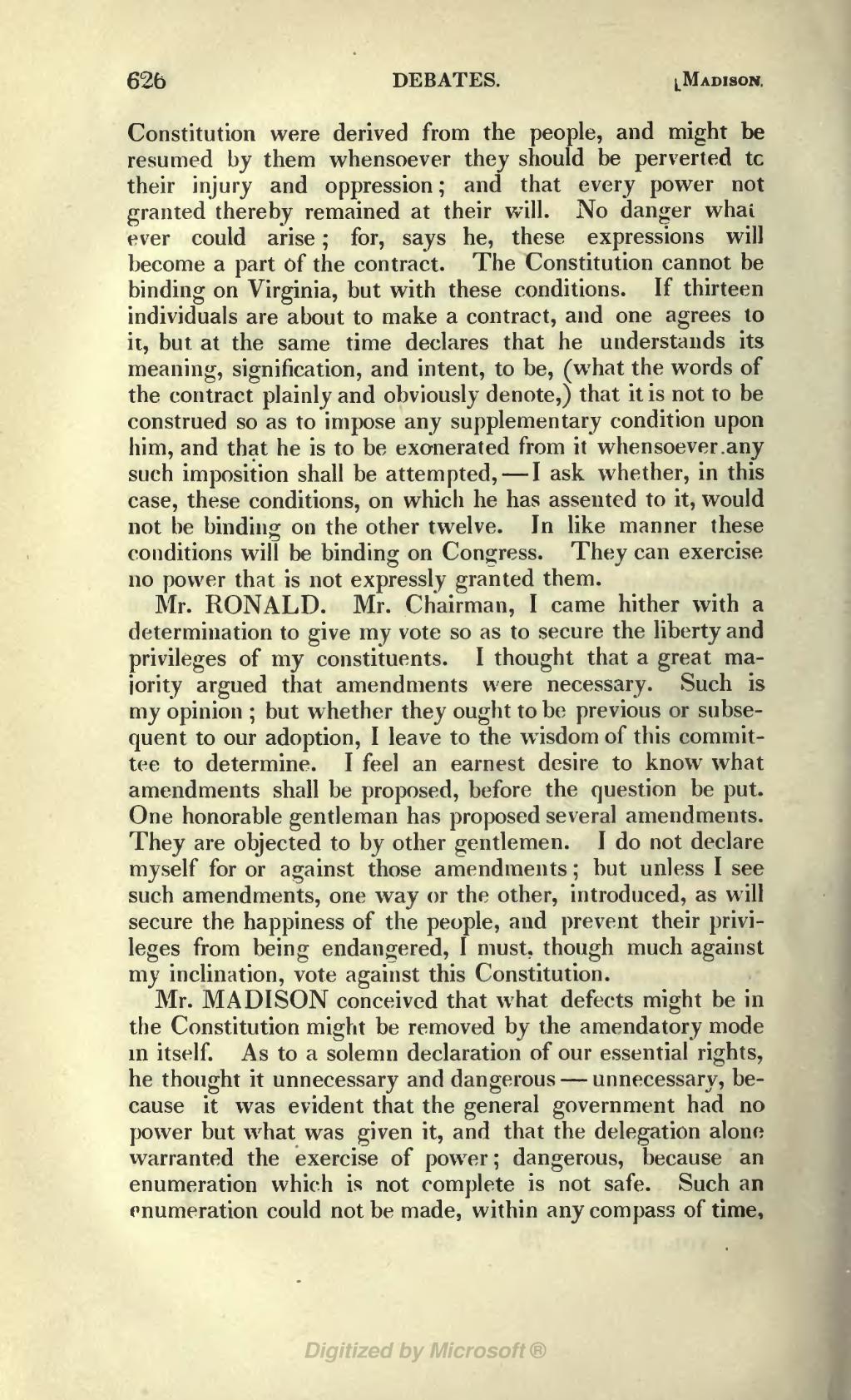Constitution were derived from the people, and might be resumed by them whensoever they should be perverted to their injury and oppression; and that every power not granted thereby remained at their will. No danger what ever could arise; for, says he, these expressions will become a part of the contract. The Constitution cannot be binding on Virginia, but with these conditions. If thirteen individuals are about to make a contract, and one agrees to it, but at the same time declares that he understands its meaning, signification, and intent, to be, (what the words of the contract plainly and obviously denote,) that it is not to be construed so as to impose any supplementary condition upon him, and that he is to be exonerated from it whensoever any such imposition shall be attempted,—I ask whether, in this case, these conditions, on which he has assented to it, would not be binding on the other twelve. In like manner these conditions will be binding on Congress. They can exercise no power that is not expressly granted them.
Mr. RONALD. Mr. Chairman, I came hither with a determination to give my vote so as to secure the liberty and privileges of my constituents. I thought that a great majority argued that amendments were necessary. Such is my opinion; but whether they ought to be previous or subsequent to our adoption, I leave to the wisdom of this committee to determine. I feel an earnest desire to know what amendments shall be proposed, before the question be put. One honorable gentleman has proposed several amendments. They are objected to by other gentlemen. I do not declare myself for or against those amendments; but unless I see such amendments, one way or the other, introduced, as will secure the happiness of the people, and prevent their privileges from being endangered, I must, though much against my inclination, vote against this Constitution.
Mr. MADISON conceived that what defects might be in the Constitution might be removed by the amendatory mode in itself. As to a solemn declaration of our essential rights, he thought it unnecessary and dangerous—unnecessary, because it was evident that the general government had no power but what was given it, and that the delegation alone warranted the exercise of powder; dangerous, because an enumeration which is not complete is not safe. Such an enumeration could not be made, within any compass of time,
